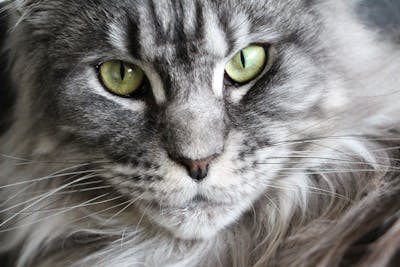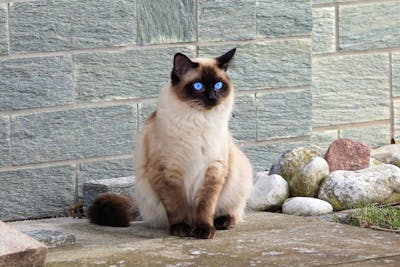Scottish Fold Cat Health Problems: Understanding the Concerns of this Unique Breed

The Scottish Fold, with its distinctive folded ears and owl-like appearance, is a breed that captures attention and hearts alike. Their unique look, a result of a genetic mutation, gives them an undeniably charming appeal. However, this same genetic mutation is also responsible for a range of health issues that potential and current owners should be aware of. This article will explore the health problems associated with this breed.
While Scottish Folds can make wonderful companions, their captivating appearance comes with a responsibility to understand and address the potential Scottish Fold cat health problems. This breed’s signature folded ears are caused by a condition called osteochondrodysplasia, a genetic disorder that affects cartilage development throughout the body. This condition can lead to a variety of health concerns, some more severe than others.
This comprehensive guide will delve into the specific health challenges faced by Scottish Fold cats, with a particular focus on osteochondrodysplasia and its associated complications. We’ll also discuss other potential health concerns, as well as preventative measures and management strategies. By understanding the health risks associated with this breed, you can make informed decisions about their care and ensure they live the healthiest life possible.
1. Osteochondrodysplasia: The Root of Scottish Fold Health Issues
Osteochondrodysplasia is the primary health concern associated with Scottish Fold cats. This genetic disorder affects the development of cartilage, the flexible connective tissue found throughout the body, including in the joints and bones. The mutation responsible for the folded ears also affects cartilage in other parts of the body, leading to a range of skeletal problems. This is the main cause of health problems in this breed.
The severity of osteochondrodysplasia can vary significantly between individual cats. Some Scottish Folds may experience only mild symptoms, while others may suffer from severe and debilitating pain and mobility issues. Common signs of osteochondrodysplasia include a reluctance to jump or play, lameness, a stiff or abnormal gait, and a reluctance to be touched on the paws or tail.
Unfortunately, there is no cure for osteochondrodysplasia. Treatment focuses on managing pain and improving the cat’s quality of life. This may involve pain medication, joint supplements, weight management, and environmental modifications to make it easier for the cat to move around. In severe cases, surgery may be considered, but it’s not always effective.
2. Degenerative Joint Disease (DJD) and Arthritis in Scottish Folds
Due to the abnormal cartilage development caused by osteochondrodysplasia, Scottish Fold cats are highly susceptible to degenerative joint disease (DJD), also known as osteoarthritis. This condition causes the cartilage in the joints to break down, leading to pain, inflammation, and stiffness. DJD can significantly impact a cat’s mobility and quality of life. This is a common problem in this breed.
Scottish Folds often develop DJD at a younger age than other breeds. The joints most commonly affected are the ankles, knees, and spine. Symptoms of DJD in cats can be subtle but may include decreased activity, reluctance to jump or climb, changes in litter box habits, and increased irritability. Early diagnosis and management are crucial for slowing the progression of the disease.
Managing DJD in Scottish Fold cats typically involves a multi-modal approach. This may include weight management, as excess weight puts additional strain on the joints. Pain medication, such as non-steroidal anti-inflammatory drugs (NSAIDs), may be prescribed to reduce pain and inflammation. Joint supplements, such as glucosamine and chondroitin, may also be recommended.
3. Other Potential Health Concerns in Scottish Fold Cats
While osteochondrodysplasia and its related complications are the primary health concerns in Scottish Fold cats, they may also be predisposed to other health issues. Polycystic kidney disease (PKD), a condition that causes cysts to form on the kidneys, has been reported in the breed. Regular veterinary checkups, including blood work and urinalysis, can help detect PKD early.
Scottish Fold cats may also be at an increased risk of developing heart problems, such as hypertrophic cardiomyopathy (HCM). HCM is a condition that causes the heart muscle to thicken, making it harder for the heart to pump blood effectively. Regular echocardiograms can help monitor heart health and detect HCM early. These are some of the other health problems that can affect this breed.
4. Breeding Practices and Ethical Considerations
Due to the health problems associated with the folded ear gene, many veterinary organizations and cat registries advise against breeding two Scottish Fold cats together. All Scottish Folds have at least one copy of the gene, and breeding two together will mean that all kittens will inherit the gene, and some may inherit two copies, leading to more severe health problems. Many believe that breeding Scottish Folds is unethical.
Responsible breeders will outcross Scottish Folds with straight-eared cats, such as British Shorthairs or American Shorthairs, to reduce the risk of severe health problems. However, even kittens with only one copy of the folded ear gene can still develop osteochondrodysplasia. Potential owners should be aware of the ethical considerations surrounding the breeding of this unique and often-debated breed.
The Scottish Fold cat is a unique and captivating breed, but their signature folded ears come with a significant risk of health problems, primarily osteochondrodysplasia. This genetic disorder affects cartilage development, leading to degenerative joint disease, pain, and mobility issues. While responsible breeding practices can help reduce the severity of these problems, potential owners should be fully aware of the health risks and ethical considerations associated with Scottish Fold cat health problems before bringing one of these cats into their home. Regular veterinary care, a healthy lifestyle, and a proactive approach to managing their health are crucial for ensuring that these cats live the most comfortable life possible.
Frequently Asked Questions (FAQs)
1. What is the life expectancy of a Scottish Fold cat?
The average lifespan of a Scottish Fold cat is around 11-15 years, but it can be significantly shorter for cats with severe osteochondrodysplasia.
2. Are all Scottish Fold cats affected by health problems?
All Scottish Fold cats carry the gene that causes osteochondrodysplasia, but the severity of symptoms varies greatly. Some may have only mild issues, while others experience severe pain and disability.
3. How can I tell if my Scottish Fold has osteochondrodysplasia?
Signs include lameness, stiffness, reluctance to jump or play, abnormal gait, and sensitivity to touch on the paws or tail. A veterinarian can diagnose the condition through physical examination and x-rays.
4. Is there a cure for osteochondrodysplasia?
No, there is no cure. Treatment focuses on managing pain and improving quality of life through medication, joint supplements, weight management, and environmental modifications.
5. Can Scottish Fold cats live a normal life?
With proper care and management, many Scottish Fold cats can live relatively normal lives. However, those with severe osteochondrodysplasia may have significant limitations.
6. What can I do to help my Scottish Fold with joint pain?
Provide a comfortable environment with soft bedding, ramps or steps to access furniture, and maintain a healthy weight. Consult your veterinarian about pain medication and joint supplements.
7. Should Scottish Fold cats be bred?
This is a controversial topic. Many veterinary organizations advise against breeding two Scottish Fold cats together due to the high risk of severe health problems in the offspring.
8. What are the signs of polycystic kidney disease (PKD) in cats?
Signs of PKD include increased thirst and urination, weight loss, lethargy, and vomiting. Regular veterinary checkups can help detect PKD early.
9. How can I find a reputable Scottish Fold breeder?
Reputable breeders prioritize the health and well-being of their cats and will outcross Scottish Folds with straight-eared breeds. They should be transparent about the health risks associated with the breed.
10. Are there any alternative breeds similar to the Scottish Fold without the health problems?
The British Shorthair and American Shorthair are often recommended as alternatives, as they share some physical similarities with the Scottish Fold but do not have the same genetic health concerns. They also come in a straight-eared variety.







